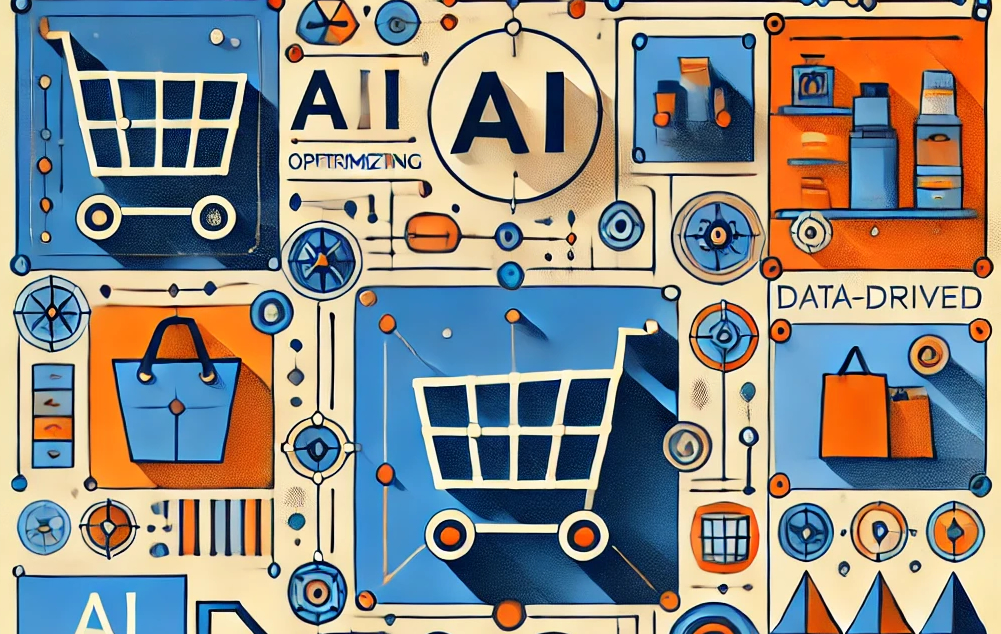AI & LLM in Retail: Transforming the Customer Experience and Operational Efficiency

The retail industry has always been at the forefront of innovation, constantly adapting to new technologies to meet evolving consumer demands. In recent years, artificial intelligence (AI) has emerged as a game-changer, particularly through the rise of large language models (LLM). From enhancing customer experiences to streamlining operations, AI-powered LLMs are revolutionizing retail in unprecedented ways.
helo The retail industry has always been at the forefront of innovation, constantly adapting to new technologies to meet evolving consumer demands. In recent years, artificial intelligence (AI) has emerged as a game-changer, particularly through the rise of large language models (LLM). From enhancing customer experiences to streamlining operations, AI-powered LLMs are revolutionizing retail in unprecedented ways.
Personalizing Customer Experience with LLMs
Personalization has become the key to winning and retaining customers in the modern retail environment. Today’s consumers expect businesses to anticipate their needs, preferences, and behaviors. This is where LLMs come in—these advanced AI models can analyze vast amounts of customer data, including browsing history, purchase patterns, and even real-time interactions.
Using LLMs, retailers can deliver highly personalized shopping experiences through:
-
Tailored product recommendations: AI models can analyze customer data and provide dynamic product recommendations, making online shopping more relevant and engaging.
-
AI-powered chatbots and virtual assistants: LLMs can manage customer queries, provide personalized suggestions, and offer seamless 24/7 customer service, transforming how customers interact with brands online.
-
Targeted marketing campaigns: By processing data from various customer touchpoints, LLMs can assist marketing teams in creating more accurate and personalized campaigns, ensuring that the right message reaches the right audience.
Streamlining Operations and Supply Chain Management
Beyond customer experience, AI and LLMs are proving instrumental in improving back-end operations. Retailers can leverage these technologies to optimize supply chains, inventory management, and logistical planning:
-
Demand forecasting: By analyzing sales data, market trends, and external factors such as seasonality, AI models can predict customer demand more accurately. This helps retailers avoid stock shortages or overstock situations, improving overall inventory efficiency.
-
Automating routine tasks: AI-powered solutions can automate a wide range of repetitive tasks, such as managing product listings, updating prices, or processing returns, allowing staff to focus on more strategic activities.
-
Supply chain optimization: LLMs can assess various factors, such as supplier performance, shipping times, and cost fluctuations, to optimize supply chain decisions in real-time. This leads to faster, more reliable delivery and helps reduce operational costs.
Enabling Smarter Decision-Making with Data-Driven Insights
Retailers collect massive amounts of data across their operations, from sales and marketing to customer service and inventory. However, making sense of all this data and turning it into actionable insights is often challenging. This is where LLMs excel. These models can sift through structured and unstructured data, uncover patterns, and deliver actionable insights:
-
Customer sentiment analysis: LLMs can analyze customer reviews, social media conversations, and survey responses to gauge customer sentiment toward products or services, giving retailers valuable insights into brand perception.
-
Product trend prediction: AI models can detect emerging product trends by analyzing market and consumer data, helping retailers to stay ahead of the curve and adjust their product offerings accordingly.
-
Improved decision-making: With the ability to analyze data in real time, LLMs enable retailers to make quicker, data-driven decisions about pricing, inventory levels, and promotions, ensuring they remain agile in a competitive marketplace.
Enhancing Retail Operations in Physical Stores
While e-commerce has significantly benefited from AI advancements, brick-and-mortar stores are also reaping the rewards of LLM-powered technologies. Retailers can enhance the in-store experience through:
-
AI-driven customer service: Smart kiosks or virtual assistants powered by LLMs can help customers navigate physical stores, offering product information, guiding them to specific items, or providing personalized recommendations based on their past purchases.
-
Inventory management: AI-powered systems can monitor in-store inventory in real time, alerting staff when restocking is necessary and improving overall store efficiency.
-
Dynamic pricing: By analyzing competitor prices, demand fluctuations, and stock levels, AI models can recommend real-time pricing strategies to maximize sales and profits in physical locations.
The Future of AI and LLM in Retail
Looking ahead, the role of AI and LLM in retail will only grow. We can expect more retailers to adopt these technologies to enhance their operations, create hyper-personalized shopping experiences, and make smarter business decisions. As AI continues to evolve, we will see more advanced models capable of performing complex tasks that require human-level understanding, further blurring the line between human and machine interaction in the retail sector.
Retailers who embrace AI and LLM technologies today will be better positioned to stay competitive and meet the ever-changing demands of tomorrow's consumers. The future of retail is intelligent, data-driven, and customer-centric—and AI is at the heart of this transformation.